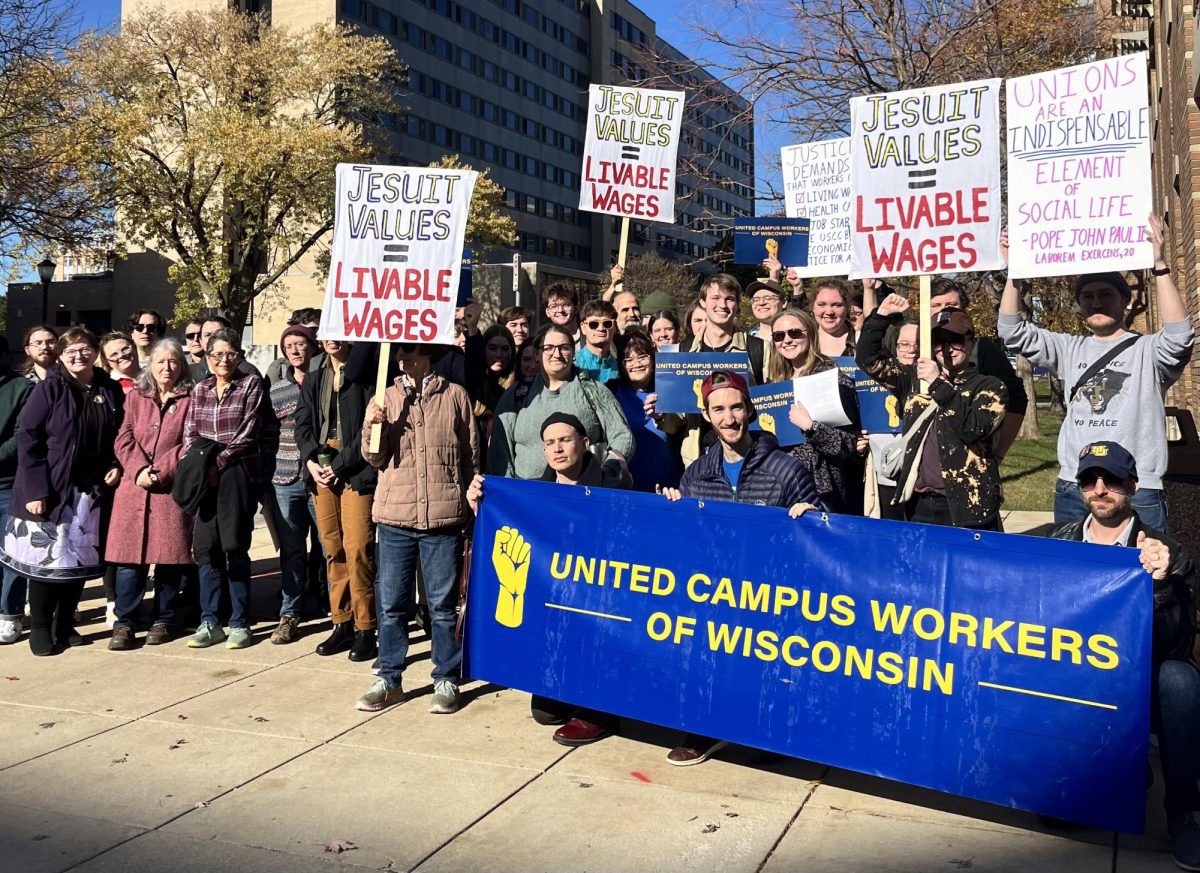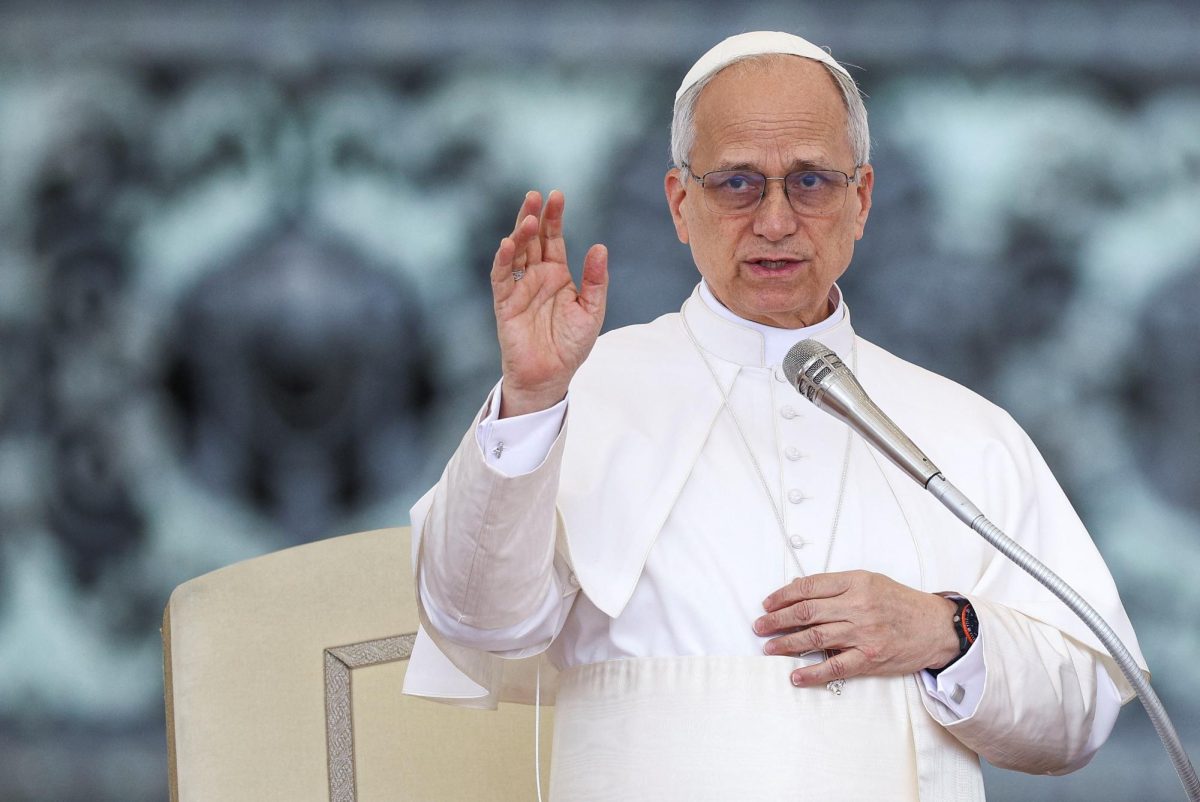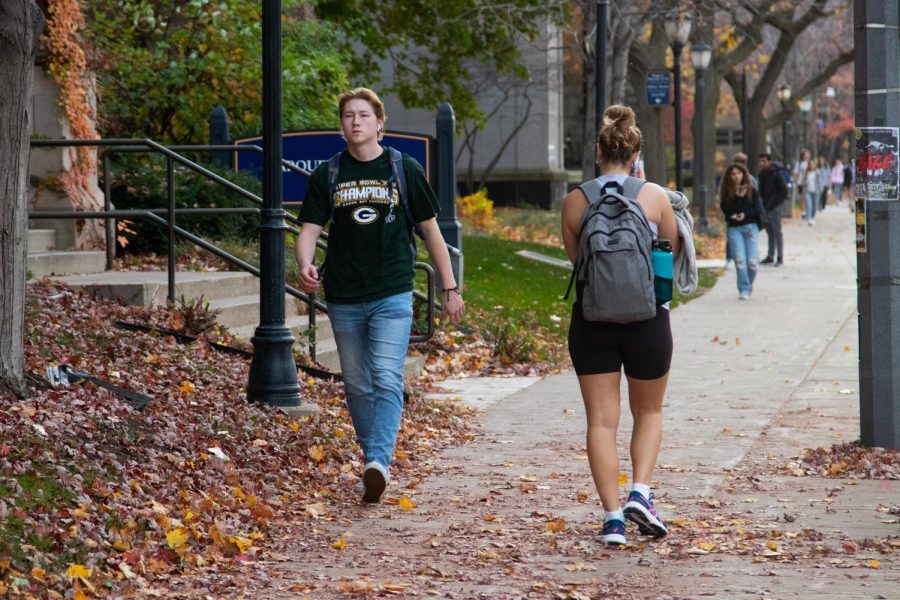The corner outside of Zilber Hall saw a flood of signs, faculty, students and speeches on Friday, Nov. 8.
Members of Marquette faculty and students gathered to show their dissatisfaction with a decision made by the Marquette administration. The decision was that under a religious exemption, the university is not legally required to adhere to union attempts under the National Labor Relations Board.
At the protest, there were signs reading, “Jesuit values = livable wages” and speeches advocating for the necessity of the union. Two petitions were delivered in support of the union: a student letter of support and a recognition petition from tenured faculty in the College of Arts & Sciences.
Although their official union request has been denied, faculty are still fighting for their cause.
The protest started off with a speech from Grant Gosizk, a teaching assistant professor of English. He announced that the United Campus Workers of Wisconsin reached super majority status of union support amongst non-tenure track faculty in the College of Arts & Sciences.
The UCW-WI has also submitted a Letter to the Editor that was published in the Marquette Wire. It further explains their process and reasoning for unionizing.
He accounted for three main issues: inadequate salary compensation, precarious short-term contracts and inadequate contract benefits.
Gosizk said that the base salary for non-tenure track faculty in the College of Arts & Sciences is 30-50% lower than unionized peer institutions.
He also stressed the 10-month renewable contracts as a problem for employees.
“10-month renewable contracts create undue stress and anxiety in our lives,” Gosizk said. “This means that in January, we start wondering how we’re going to structure our healthcare in the coming year and that in May when our contracts dissolve, we wonder where or not we’ll have jobs in the coming fall.”
Another speaker, Chris Gooding, who teaches in the theology department, said that Catholic Social Teaching aligns in favor of unions.
Besides the aforementioned reasons, Gooding also placed an importance on the community aspects of unions.
“There is nothing else at this university that gets me talking to my colleagues and other departments, but this gets me into relationships with people in political science, in English, it gets collaboration across all of those departments,” Gooding said.
Luke Syverud, a junior in the College of Arts & Sciences, said that he has been involved with the union efforts since last year.
“Our faculty are being put at odds with the administration, and the administration has taken a stance against the interests of our faculty, and we as students understand that our faculty are the core of this institution,” Syverud said.
The Marquette administration released an official statement in response to union attempts. This is what Monica MacKay, university spokesperson, said:
“Continuing our strong partnership with faculty and staff — without needing to engage the union as an outside third party that may not share our same values — is the best way to deliver our Catholic, Jesuit mission and serve our students.
For the past several years, the university has been working collaboratively with participating (non-tenure track) faculty to celebrate their important contributions and to address challenges.
In June 2019, the university convened a Participating Faculty Task Force, which resulted in improvements made in five key areas: contract terms, compensation and benefits, performance evaluation and promotion, professional development, and recognition and inclusion. While we still have work to do, we have accomplished a lot and have made progress on all the recommendations.
To protect this collaboration and the direct relationship with all our faculty that is critical to our Catholic, Jesuit intellectual life at Marquette, the university is invoking its legal right for a religious exemption from National Labor Relations Board oversight. A series of court and NLRB decisions have upheld this as an established precedent, including within the last month at Saint Leo University.
Ultimately, the religious exemption is about the Constitution’s First Amendment protection of religious freedom from government regulation — widely regarded as one of America’s most important rights.
Marquette has a long and proud history of providing an education that transforms the lives of our students so they can in turn improve our world. We have a shared responsibility to make decisions that reflect the reality of the higher education environment nationally. That includes improving compensation for faculty and staff while being vigilant about keeping a Marquette education affordable for students,”
This story was written by Ruby Mulvaney. She can be reached at ruby.mulvaney@marquette.edu.








